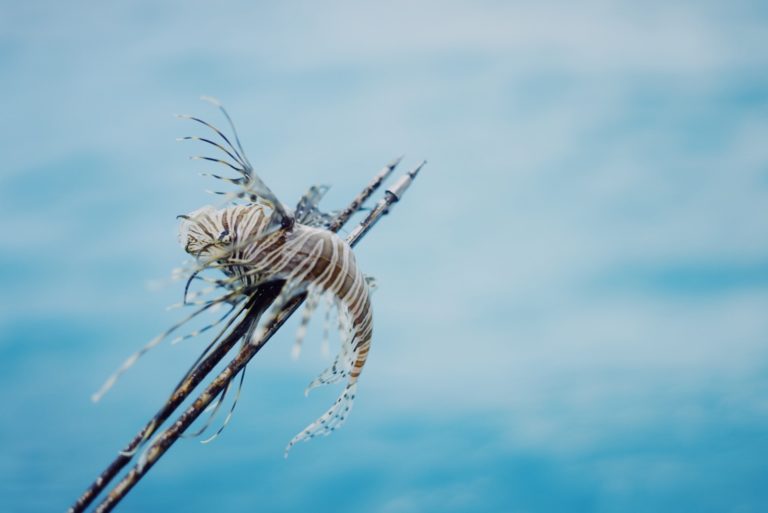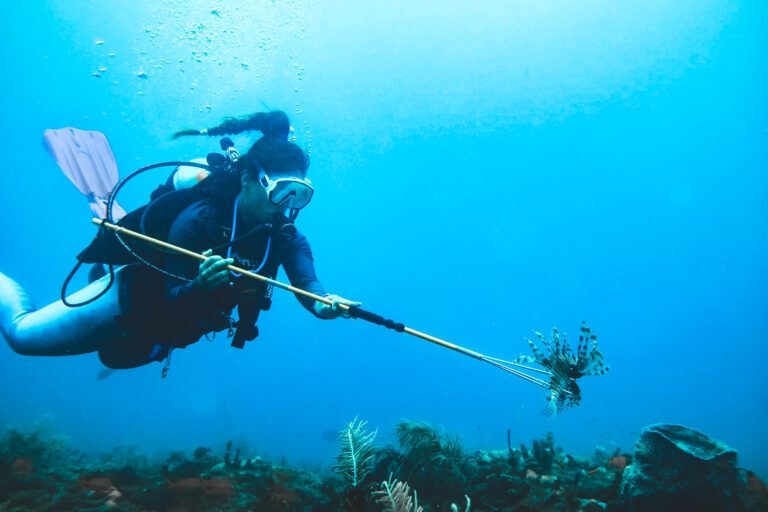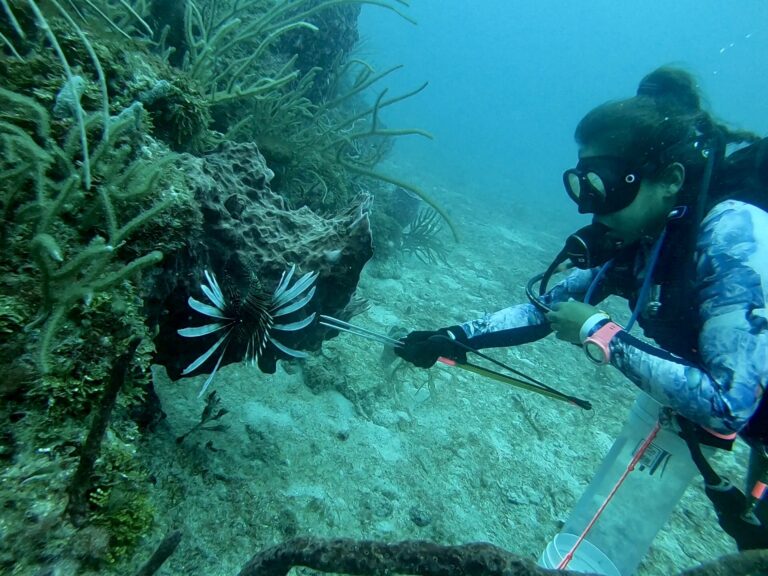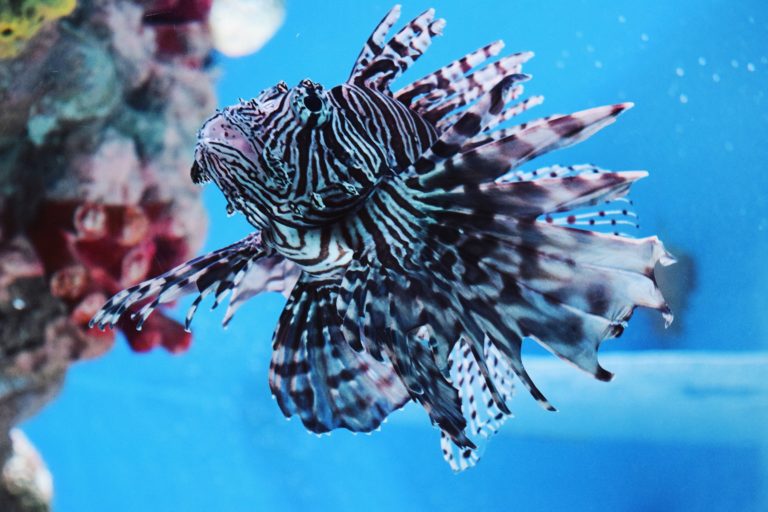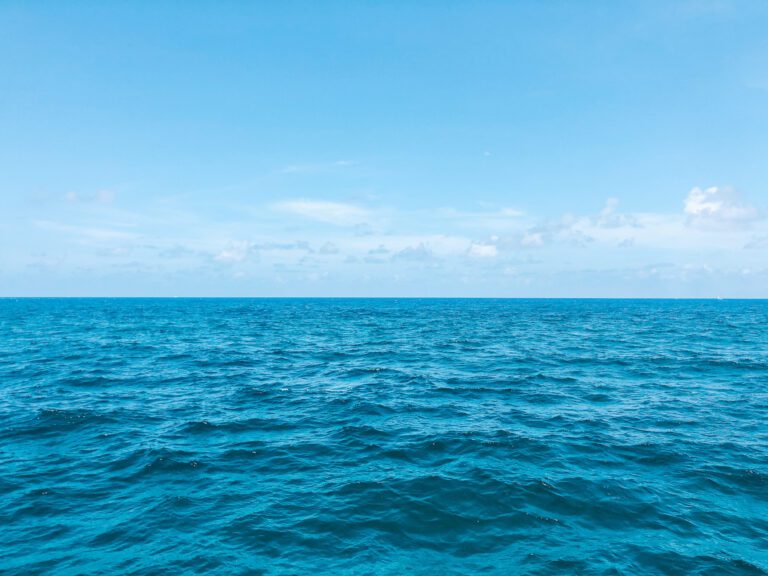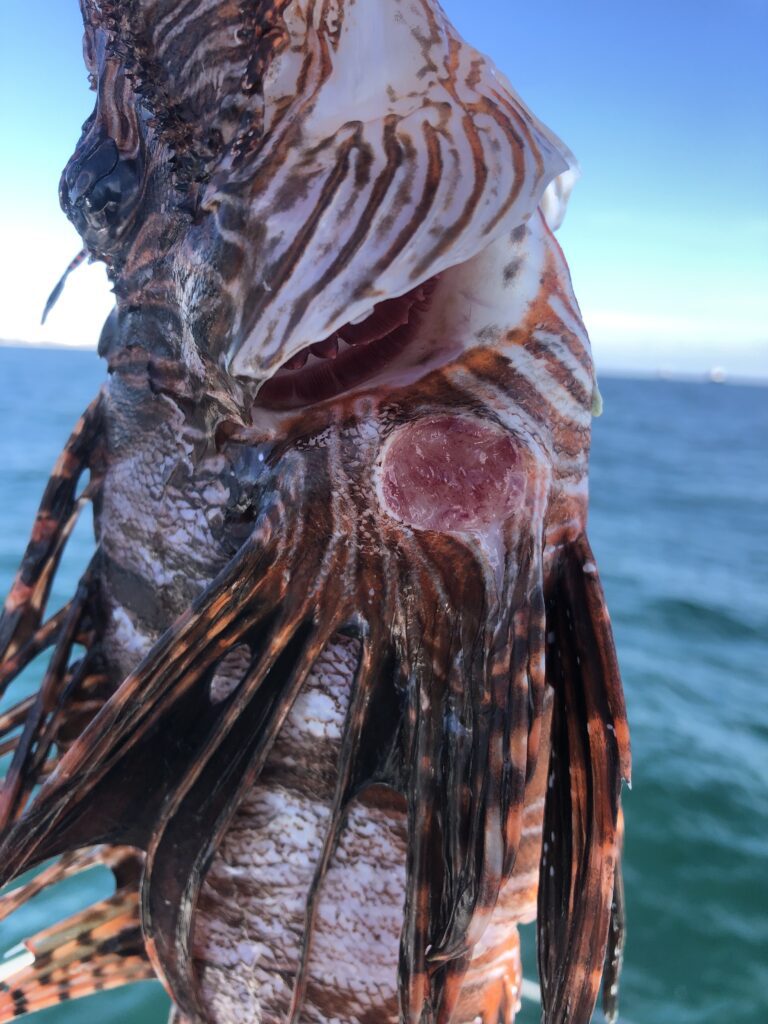Lionfish Sting First Aid for Divers
Helpful first aid tips for a lionfish sting while diving.
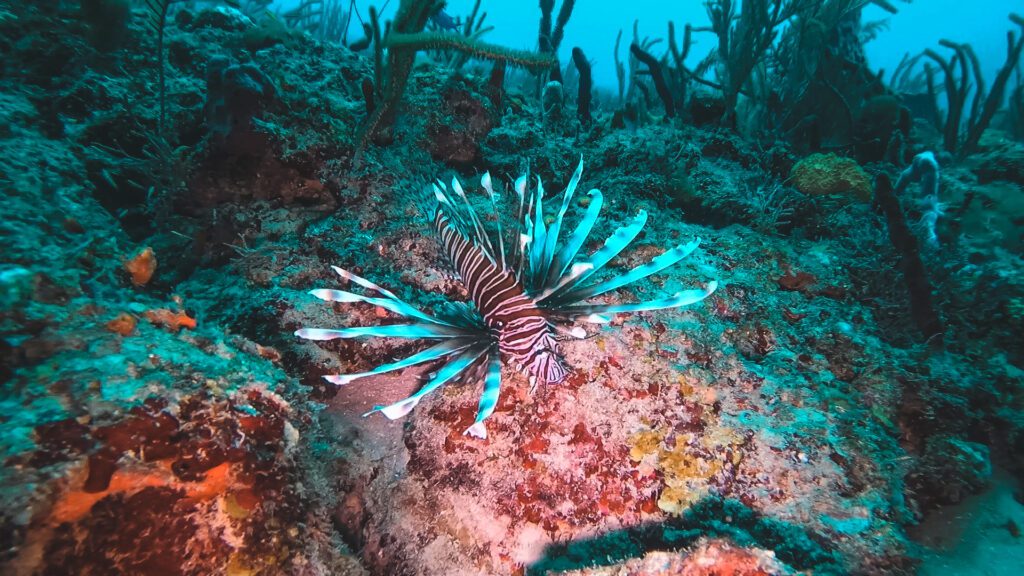
Lionfish are an invasive, yet beautiful, fish in the Western Atlantic. Part of their beauty stems from their widespread, colorful fins (resembling a lion’s mane, hence the name). However, although beautiful, some of these same “fins” contain heavy concentrations of venom – making this stunning fish rather dangerous.
In total, the invasive species possesses 18 venomous spines hidden throughout its mane-like fins. 13 on their dorsal fin (back), one on each side of its pelvic fin and three along its anal fin.
Hunting Lionfish and Getting Stung
Now, because of their invasiveness, lionfish are a favorite target for underwater hunters amongst scuba divers and free divers. Pole spears are taken, lionfish are preyed upon and the environment is saved. Everyone wins.
Except for a careless hunter.
Oftentimes, while hunting lionfish, an accidental poke from one of the aforementioned spines happens. It’s not a good feeling. In fact, if the spine penetrates your skin deep enough, it can cause some real problems as it injects a heavy dose of venom right into your bloodstream.
Here’s what Divers Alert Network (DAN) recommends to do:
Lionfish Sting First Aid While Diving
- Don’t panic and remain calm. We all know someone panicking never creates a safe situation, particularly in a sport like scuba diving. So if you get stung by a lionfish, rule #1: don’t panic. Otherwise, you’ll put yourself and your dive buddies in a more dangerous situation.
- Notify your partner, DM or dive buddy that you’ve been stung. In much the same breath, get your dive buddy’s attention and let them know what happened so they can act accordingly.
- End your dive. A lionfish sting may warrant medical attention so ending your dive immediately is crucial for your safety.
- Make a safe, slow ascent. Keep in mind, an ascent rate at one second per foot is recommended – no matter the circumstances. Additionally, conduct all recommend decompression / safety stops along the way. You may be in pain, but you’ll be in much more pain when you experience a lung injury because you surfaced too quickly.
- Provide any necessary first aid and head for the nearest medical facility. Get to your boat, the beach, or wherever you started your dive and head to the nearest medical facility (continued in next section).
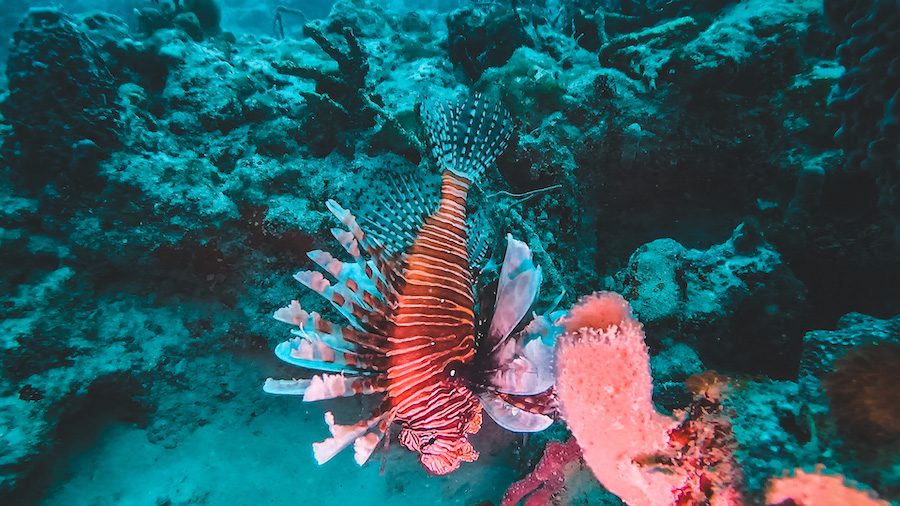
Lionfish Sting First Aid on the Surface
- Assist the injured diver from the water. This is a no brainer but keep in mind, they may be in a panic. Try to calm the situation and handle it in the most level headed fashion possible.
- Remove any obvious foreign material. In many cases, the spine may actually be stuck in the skin after it breaks off from the lionfish. If that’s the case, remove any spine left behind from the wound.
- Rinse wound with fresh, clean water. To remove any salt or lingering bacteria from the affected area.
- Soak wound in hot water. After cleaning the wound, soak it for 30 minutes in heated, non-scalding water (110 – 113F / 43-45 C). The hot water breaks down the enzymes within the venom. (Obviously, you might be on a boat so the best way to achieve this is to have a Yeti Thermos filled with previously boiled water. We boil water in the AM, put it in the thermos, and store it on the boat in case of an accidental sting.)
- Monitor circulation, airway, breathing (basic life support and first aid). Anaphylactic shock is possible, so think back to your First Aid / CPR class and monitor circulation, airway, and breathing.
- Head to nearest medical facility. Depending on the severity of the sting and reaction, either drive the boat to the nearest dock and call an ambulance or call the Coast Guard. If the injury isn’t life threatening and only minor pain is present, you can handle the first aid aboard your vessel.
6 Tips to Avoid Getting Stung by a Lionfish
Some last minute tips to avoid getting stung in the first place.
- While hunting lionfish, keep a safe distance before you shoot. The lionfish may dart away and accidentally sting you.
- If hunting lionfish, use a containment system, such as the ZooKeeper, to reduce your risk of getting stung.
- Some people like to remove the spines with Sea Snips underwater to prevent any accidental pokes.
- Know the anatomy of a lionfish to avoid accidental pokes from the anal and pelvic fins.
- When filleting lionfish, either remove spines or be extremely cautious.
- A dead lionfish can still sting and still inject venom. Be cautious long after the fish has died.
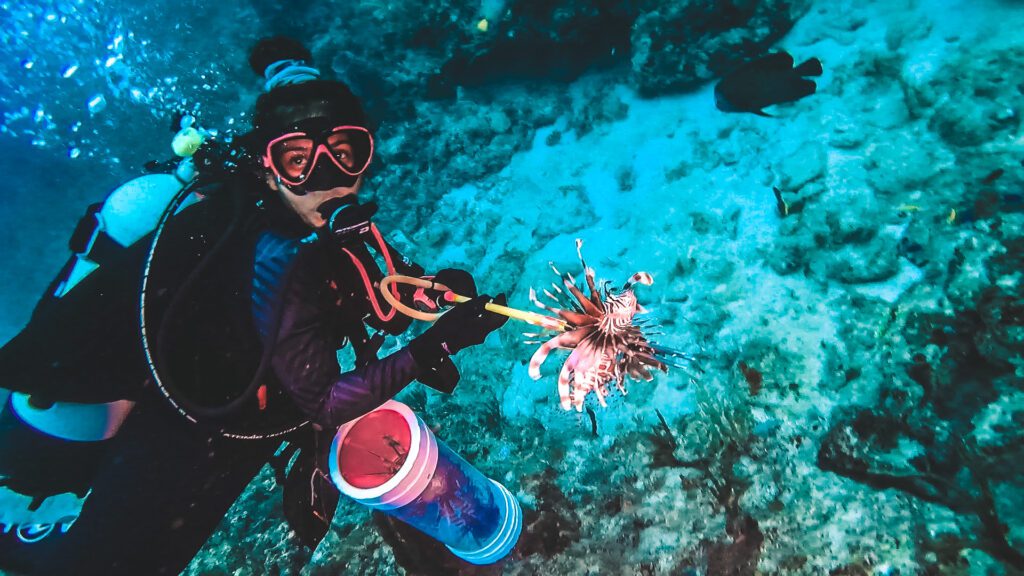
Lionfish Sting First Aid Debrief
This list isn’t exhaustive and everyone’s body may react differently to the sting. I’ve seen people have little to no reaction after getting stung and I’ve seen people go into anaphylactic shock (an allergic reaction). It just depends on how much venom was injected and how your body responds.
Regardless, treat every sting with the seriousness that it deserves, provide the best medical care possible, call the Coast Guard if need be and do your best to prevent accidental stings in the first place. Happy hunting!
Enjoy this Post? Pin it!

Read More Lionfish Hunting Tips
We hope you enjoyed our post on lionfish sting first aid. Hopefully you’ll find it useful on your next adventure! Here are a few more ocean-loving articles we think you should read next:
- 7 Useful Tips for Lionfish Hunting in St. Thomas, USVI
- 7 Ocean Animals Spotted in Fort Lauderdale
- VIDEO: Spearfishing Lionfish in Fort Lauderdale
- How to Win Prizes for Removing Lionfish in Florida
How do you avoid being stung by an invasive lionfish? Any times we should add? Let us know in a comment below!

